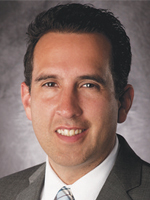Fraud after Riverisland and Julius Castle
Consumers can now present evidence of oral promises at odds with their written contracts even if the contract has an integration clause
Seventy-five years ago, the Pendergrass court held that the fraud exception to the parol-evidence rule could not be used to contradict any of the provisions of a written contract because the contract was fully integrated. Thus, as a result of Pendergrass, claims that involve fraud have been dismissed at summary judgment or at trial leaving only a claim for breach of contract. The Riverisland decision substantially diminished the effect of Pendergrass allowing the practitioner to proceed with a fraud claim despite the existence of an integration clause and/or the parol-evidence rule.
Proving fraud after Riverisland
In 2013 the California Supreme Court explicitly overruled a long list of cases regarding the applicability of the parol-evidence rule in the context of fraud. (Riverisland Cold Storage v. Fresno-Madera Production Credit Ass’n (2013) 55 Cal.4th 1169.) As discussed at length in Riverisland, the parol-evidence rule is codified at Code of Civil Procedure section 1856, subd. (g) and states the fraud exception to the rule: “This section does not exclude other evidence ... to establish ... fraud.”
Despite the fact that the seminal case, Bank of Am. v. Pendergrass (1935) 4 Cal.2d 258, “specifically allows evidence of fraud,” the Court in Pendergrass imposed a limitation on the fraud exception requiring that the fraud “tend to establish some independent fact or representation, some fraud in the procurement of the instrument or some breach of confidence concerning its use, and not a promise directly at variance with the promise of the writing.” (Pendergrass, 4 Cal.2d at p. 263-64.) After setting forth the long history of judicial criticism of the Pendergrass line of cases, the California Supreme Court concluded “that Pendergrass was an aberration” and overruled Pendergrass and its progeny. (Riverisland, 55 Cal.4th at 1182.) The Riverisland court reiterated “the venerable maxim stated in Ferguson v. Koch (1928) 204 Cal. 342 at p. 347: “[I]t was never intended that the Parol Evidence Rule should be used as a shield to prevent the proof of fraud.” (Id.)
As such, the breaching parties’ misrepresentations cannot be excluded on the basis of the parol-evidence rule even if they were contradictory to the terms of the contract or made prior to or after the integration of the agreement, and even if the contract is integrated. Importantly, most of the alleged misrepresentations the defendant would have likely made would relate to matters not set forth in the agreement. A fraud action based on representations that were not included in the written agreement, even if it is integrated, is appropriate. (Ron Greenspan Volkswagen v. Ford Motor Land Dev. Corp., (1995) 32 Cal.App.4th 985, 987-989.) “‘Evidence of fraudulent misrepresentations inducing the execution of a contract is admissible as an exception to the Parol Evidence Rule.’” (Greenspan at 993, citing Buist v. C. Dudley Corp. (1960) 182 Cal.App.2d 325, 331.) Greenspan further stated that there is a “well-settled rule that parol evidence is admissible to prove fraud in the inducement ‘even though the contract recites that all representations are embodied herein.’” (Greenspan at 995, citing Ferguson v. Koch (1928) 204 Cal 342, 347.) Significantly, Greenspan also stated that: “‘it was never intended that the parol evidence rule should be used as a shield to prevent proof of fraud....’” (Greenspan at 995, citing Morris v. Harbor Boat Building Company (1952) 112 Cal.App.2d 882, 888.)
The Riverisland decision has had far-reaching effects allowing for a fraud claim to proceed in the face of an integrated contract. In the past, lenders successfully relied on Pendergrass as legal support to bar evidence by borrowers of oral promises at odds with the terms of their written loan agreements. Both Pendergrass and Riverisland involved claims by borrowers that their lenders had orally promised longer repayment terms than were stated in their loan agreements. The Riverisland decision stands for the legal proposition that consumers can now present evidence of oral promises at odds with their written contracts even if the contract has an integration clause.
This may not, however, always be a windfall for consumers. Like many consumers, the borrowers in Riverisland did not read the agreement before signing it. The Supreme Court in Riverisland refused to decide whether the borrowers could have justifiably relied on the lender’s promises notwithstanding its decision in Rosenthal v. Great Western Fin. Securities Corp. (1996) 14 Cal.4th 394 that the negligent failure to read a contract precludes a finding that it is void for fraud. The Riverisland court left open the possibility of a more lenient rule in cases where equitable relief is sought for fraud in the inducement of a contract
Proving justifiable reliance in a fraud in the inducement claim
Despite the ruling in Riverisland, the plaintiff will still have to prove that there was actual reliance on the misrepresentation(s) and that the reliance was justified or reasonable. These are questions of fact allowing the practitioner to proceed with the claim. But the existence of an integration clause makes proving whether the reliance was actually justified much more of a difficult question. If the oral representation was actually important or material, why was it not put in the contract? Thus, being able to proceed with a fraud claim does not mean that you will actually ultimately prevail on the claim; whether you prevail will be based on the testimony of the witnesses as to why the alleged representations did not find their way into the agreement.
Julius Castle Restaurant v. Payne (2013) 216 Cal.App.4th 1423, is instructive when evaluating whether the reliance was justified or reasonable. In Julius Castle the Court held that in a case involving sophisticated parties, evidence of commercial lessor’s alleged guarantee as to quality of restaurant equipment and alleged promise to repair faulty equipment was admissible to prove fraud in inducement despite lease’s integration clause and “as is” provision concerning equipment. The Court in Julius Castle acknowledged that the fraud analysis changed following Riverisland with the focus now more on the issue of justifiable reliance. But like the Court in Riverisland, it did not address specifically how the determination of whether reliance was justified would change; instead, the court in Julius Castle posed a number of questions to ask, including: “What are the plausible reasons for the alleged discrepancy between the claimed oral promises and the signed writing? Is there compatibility between the oral representations and the written document? What is the evidence relating to whether the document was read and considered before signing?” (Id. at 1442.)
The credibility of the client at this point is imperative. Your client must demonstrate the reasonableness of his reliance. Key to succeeding in this argument is displaying the discrepancies between the signed writing and the oral promises and showing that the defendant had exclusive access to the necessary information for your client to make an informed decision. You must further prove that this information was withheld from your client and/or misrepresented to him, up until and including the time he or she executed the contract. Though, the issue of what constitutes justifiable reliance has yet to be examined in light of the Court’s holding in Riverisland, the questions posed in Julius Castle have been deemed instructive by California courts in ruling on whether the element of justifiable reliance was satisfied. (See also CACI 1907 Reliance, and CACI 1908 Reasonable Reliance.)
How to hold the corporate officers and directors individually liable for fraud
In many cases in which a fraud claim is brought in conjunction with a breach of contract claim, the fraud claim is made against specific officers or directors of a company, while the contact claim is made against the company. In order to hold officers or directors individually liable for fraud, plaintiffs must prove that the officers or directors participated in the wrong or authorized or directed that it be done. A corporate director or officer’s participation in tortious conduct may be shown not solely by direct action but also by knowingly consenting or approving the unlawful acts. (See PMC, Inc. v. Kadisha, (2000) 78 Cal.App.4th 1368, 1379-82.)
Corporate director or officer status neither immunizes a person from personal liability for tortious conduct nor subjects him or her to vicarious liability for such acts. (Frances T. v. Village Green Owners Assn. (1986) 42 Cal.3d 490, 505, (hereafter Frances T.); 18B Am.Jur.2d, Corporations, § 1877 (1985).) The decision in United States Liab. Ins. Co. v. Haidinger-Hayes, Inc. (1970) 1 Cal.3d 586, 595, is instructive in this regard. That case held that, “Directors or officers of a corporation do not incur personal liability for torts of the corporation merely by reason of their official position, unless they participate in the wrong or authorize or direct that it be done. They may be liable, under the rules of tort and agency, for tortious acts committed on behalf of the corporation.” (Ibid.)
As the Supreme Court explained in Frances T.:
It is well settled that corporate directors cannot be held vicariously liable for the corporation’s torts in which they do not participate. Their liability, if any, stems from their own tortious conduct, not from their status as directors or officers of the enterprise. ‘[A]n officer or director will not be liable for torts in which he does not personally participate, of which he has no knowledge, or to which he has not consented.... While the corporation itself may be liable for such acts, the individual officer or director will be immune unless he authorizes, directs, or in some meaningful sense actively participates in the wrongful conduct.’
(Id. at p. 505.)
Directors are jointly liable with the corporation and may be joined as defendants if they personally directed or participated in the tortious conduct. Directors are liable to third persons injured by their own tortious conduct regardless of whether they acted on behalf of the corporation and regardless of whether the corporation is also liable. This liability does not depend on the same grounds as ‘piercing the corporate veil,’ on account of inadequate capitalization for instance, but rather on the officer or director’s personal participation or specific authorization of the tortious act.” (Frances T., supra, 42 Cal.3d at pp. 503-504, orig. italics, fn. omitted.) Shareholders are likewise not normally liable for a corporation’s torts, “but personal liability may attach to them ... when [they] specifically direct [ ] or authorize [ ] the wrongful acts.” (Wyatt v. Union Mortgage Co., supra, 24 Cal.3d at p. 785; 18B Am.Jur.2d, Corporations, § 1829 (1985).) A corporate director or officer’s participation in tortious conduct may be shown not solely by direct action but also by knowing consent to or approval of unlawful acts. (Frances T., supra, 42 Cal.3d at pp. 503-504; Spahn v. Guild Industries Corp. (1979) 94 Cal.App.3d 143, 157, fn. 9.)
In Spahn v. Guild Industries Corp., supra, 94 Cal.App.3d at p. 157 and fn. 9, the Court of Appeal held officers and directors of a corporation were personally liable for fraud committed by a managerial employee because they knew about and allowed the tortious conduct to occur. In addition, corporate directors and officers may be held personally liable, as conspirators, for violating their own duties towards persons injured by the corporation’s tort. (Wyatt v. Union Mortgage Co., supra, 24 Cal.3d at p. 785; PMC, Inc. v. Kadisha, (2000) 78 Cal.App.4th 1368, 1379-82.)
The takeaway from these cases
So, what is the takeaway from these cases? First, it is critical to plead and obtain discovery regarding what actions the individual officer or director did with respect to the fraudulent misrepresentations. Second, you must plead and secure the necessary evidence for trial demonstrating that the individual officer or director actually participated, authorized, or allowed the conduct to occur. Third, preserving your fraud cause of action and obtaining the necessary evidence changes the dynamics of your case. What was a breach of contract case entitling you to compensatory damages, is now a case which involves punitive damages and potential individual liability to each officer and director involved in the wrongdoing. The settlement value of your case goes up exponentially as does a potential jury verdict.
In sum, as a result of the decisions in Riverisland and Julius Castle the parol-evidence rule has been severely diminished. Well-pled claims for promissory fraud and fraud in the inducement will now survive demurrer, but whether they get past summary judgment will depend on the facts of the case. In cases where consumers have not read the agreements before signing them, they will have to show facts establishing that their failure to read the contracts was not negligent given the alleged promises or relationship of the parties. Moreover, the questions posed by Julius Castle will also assist in proving whether consumers justifiably relied on the misrepresentations prior to entering into written agreements. Lastly, specifically pleading and establishing how a corporate officer or director participated or authorized the fraudulent misrepresentations is key to holding the officer or director individually liable for the fraud.
Paul A. Traina

Paul A. Traina of Engstrom, Lipscomb & Lack specializes in complex civil/business litigation, class action lawsuits, securities litigation, and professional liability claims. A 1991 graduate of Pepperdine University School of Law, he was named one of Southern California’s Super Lawyers, 2004-2008 and served as the Consumer Attorneys of California, 2002-2003.
Jared W. Beilke

Jared W. Beilke of Engstrom, Lipscomb & Lack is a graduate of Southwestern University School of Law 1997. He specializes in business litigation, environmental litigation, insurance bad faith, and personal injury.
Andrew M. Jacobson

Andrew M. Jacobson of Engstrom Lipscomb & Lack is a graduate of UCLA School of Law 2012. He specializes in complex civil and business litigation.
Copyright ©
2026
by the author.
For reprint permission, contact the publisher: Advocate Magazine

